Want the best of VICE News straight to your inbox? Sign up here.
Every evening, Farhad and his three daughters collect branches from shriveled olive trees that dot the landscape surrounding Moria, Europe’s largest migrant camp. Gathering tinder for a scant fire has become the family’s evening routine. The girls are young enough to see it as a game, but Farhad knows they need the warmth at night, when the temperatures can drop below freezing.
“When I came to Greece, I never expected the conditions to be this bad. My daughters are suffering. Everyone is suffering,” Farhad said. “There are only small blankets, no electricity, no answers, and nowhere to go. I spent everything coming here.”
Initially intended in 2015 to be a temporary registration center for refugees arriving to Europe, Moria, on the Greek island of Lesbos, has erupted into an overcrowded encampment regularly described as “hellish.” The camp’s population recently surpassed 20,000, seven times its capacity. The refugees, largely fleeing unrest in the Middle East, wait out uncertain promises of a better life while their asylum claims weave through a bureaucratic system.
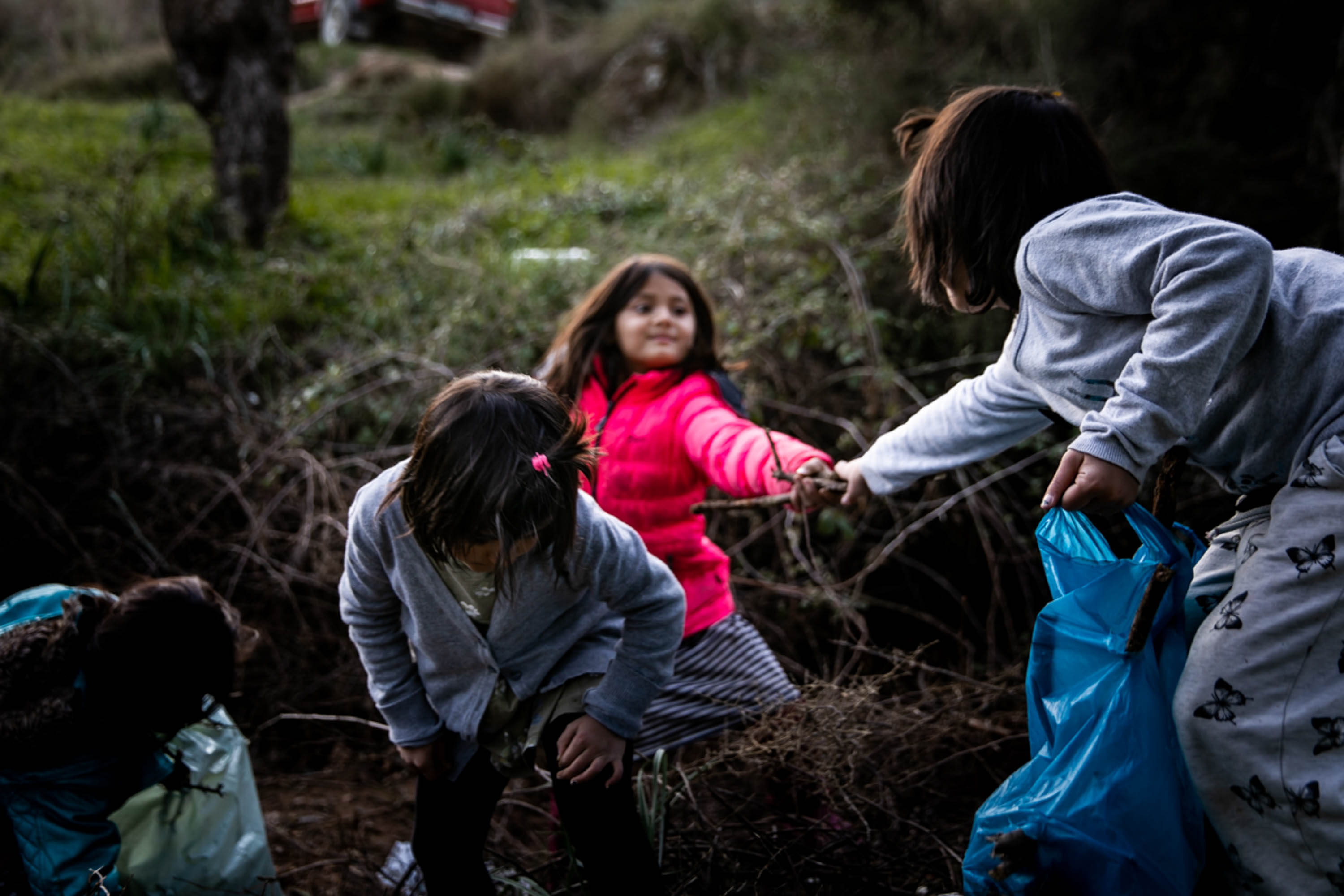
There’s no consistent electricity in the camp, and running water is intermittent; hot water non-existent. Dumpsters overflowing with garbage line the muddy streets, and the only toilets are overflowing porta-potties or unlit, concrete latrines. At least once a week, a sewage pipe bursts and a stream of human feces runs through the camp before gravity carries it to a nearby stream.
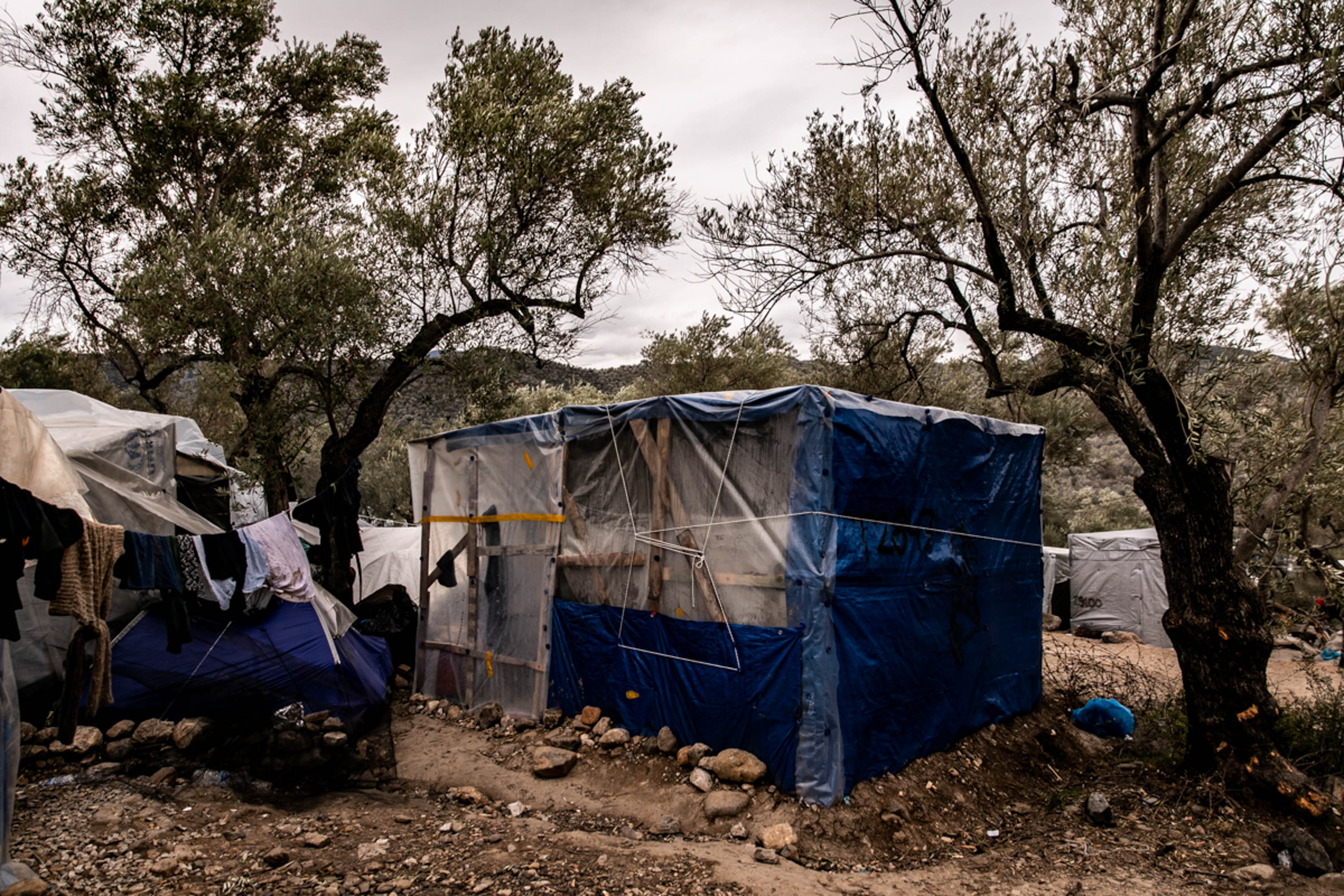
Now, a confirmed case of COVID-19, the disease caused by the coronavirus, has ignited worries of an outbreak in the camp, where the refugees have almost no access to adequate medical care. The cramped and squalid conditions mean illness spreads quickly, and lines to visit one of the camp’s few doctors can take hours. Once they see a doctor, supplies and medication are limited. Since September 2019, seven people, including infants, have died in the camp.
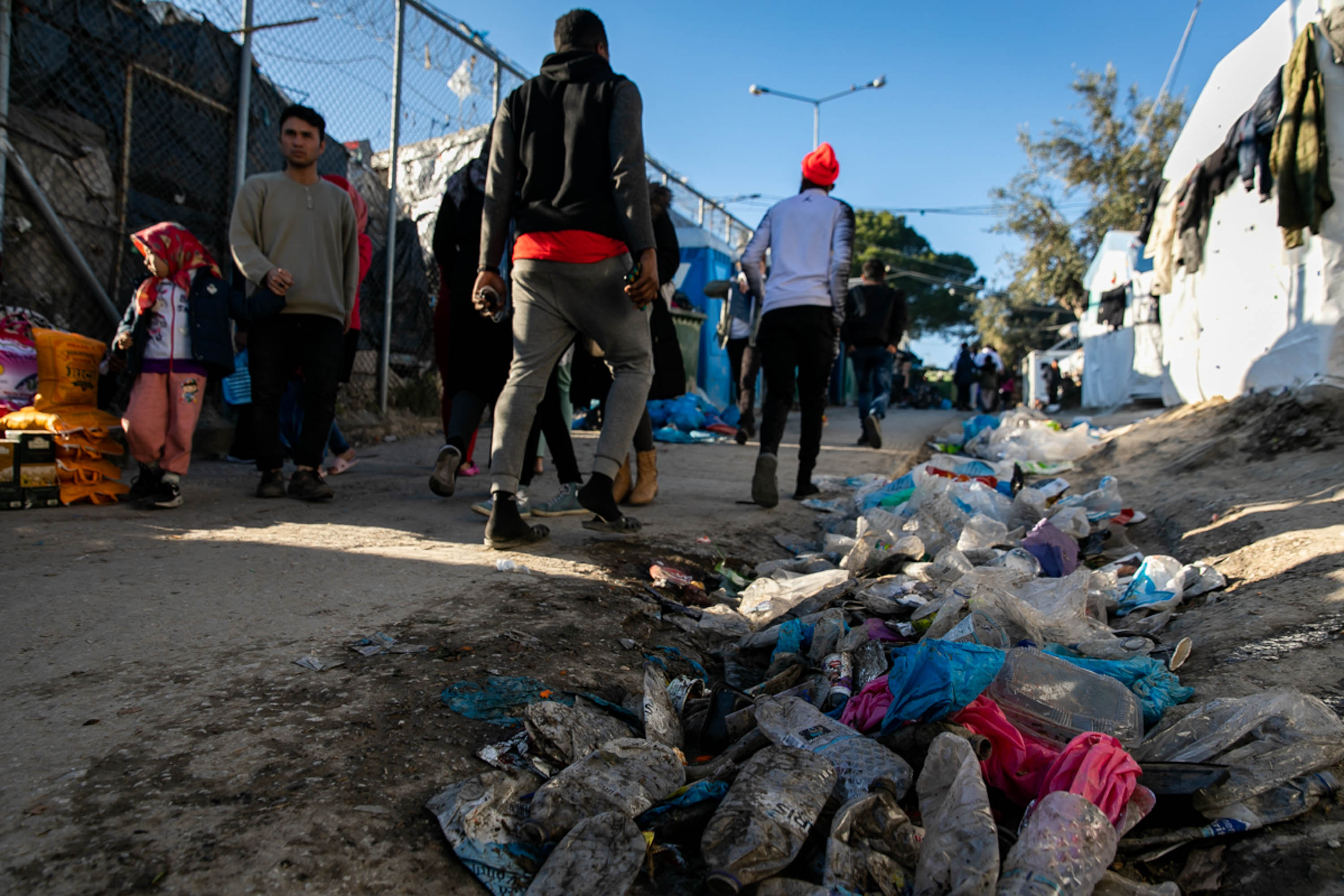
“The hardest part about Moria is seeing my children suffer. Two of my girls have been sick for months, and my son has stopped talking — I am worried he will hurt himself. At night my children, husband, and me sleep together in the tent to stay warm,” said Asma, who landed on Lesbos in a large, inflatable raft with 50 other refugees last October.
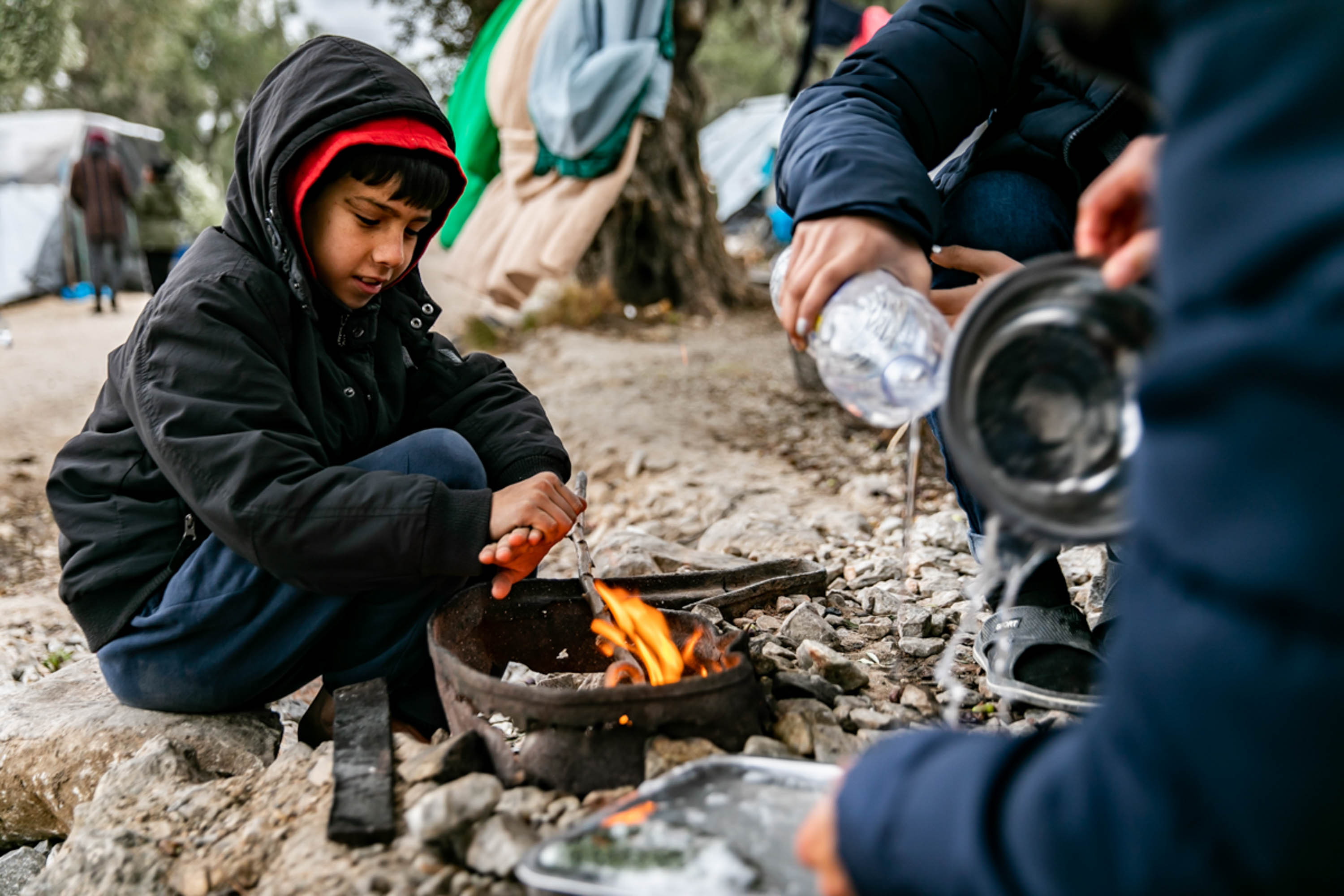
Many children, which make up about a third of the camp’s population, run around in flip-flops. The adults wear off-brand crocs or sneakers several sizes too big or with the heels crushed in to allow space for their toes. Fights sometimes break out over donated clothing or sleeping bags, and families rifle through the garbage for cardboard to lay between their tents and the cold, damp ground. At night, mothers fill large, plastic bottles with hot water for their children to curl around for warmth, a small gesture of comfort in a place where parents are stripped of autonomy.
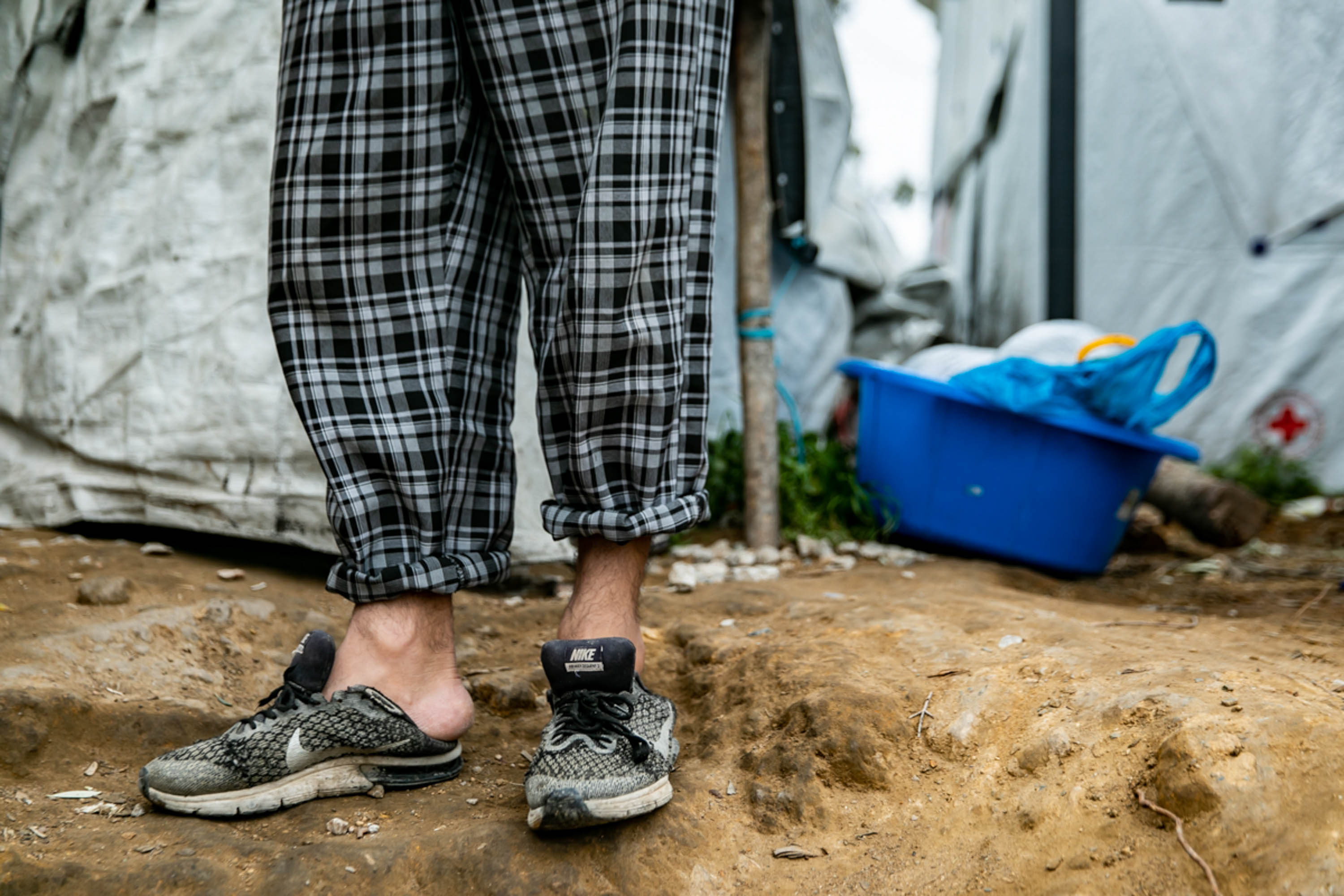
“If I stayed in Afghanistan, I knew I would die, but here I die a little every day,” Asma added.
Despite the dire conditions in Moria, migrants continue to flee violence or poverty in their homelands. Within days of Turkey’s recent announcement that it would no longer block refugees from attempting to reach Europe, thousands of refugees fled to the border. They’re now trapped in a deadly standoff between Greek police — armed with teargas and rubber bullets — and Turkish officials on the northern border. On Lesbos, frustrated locals have attacked migrant boats as well as journalists and aid workers.
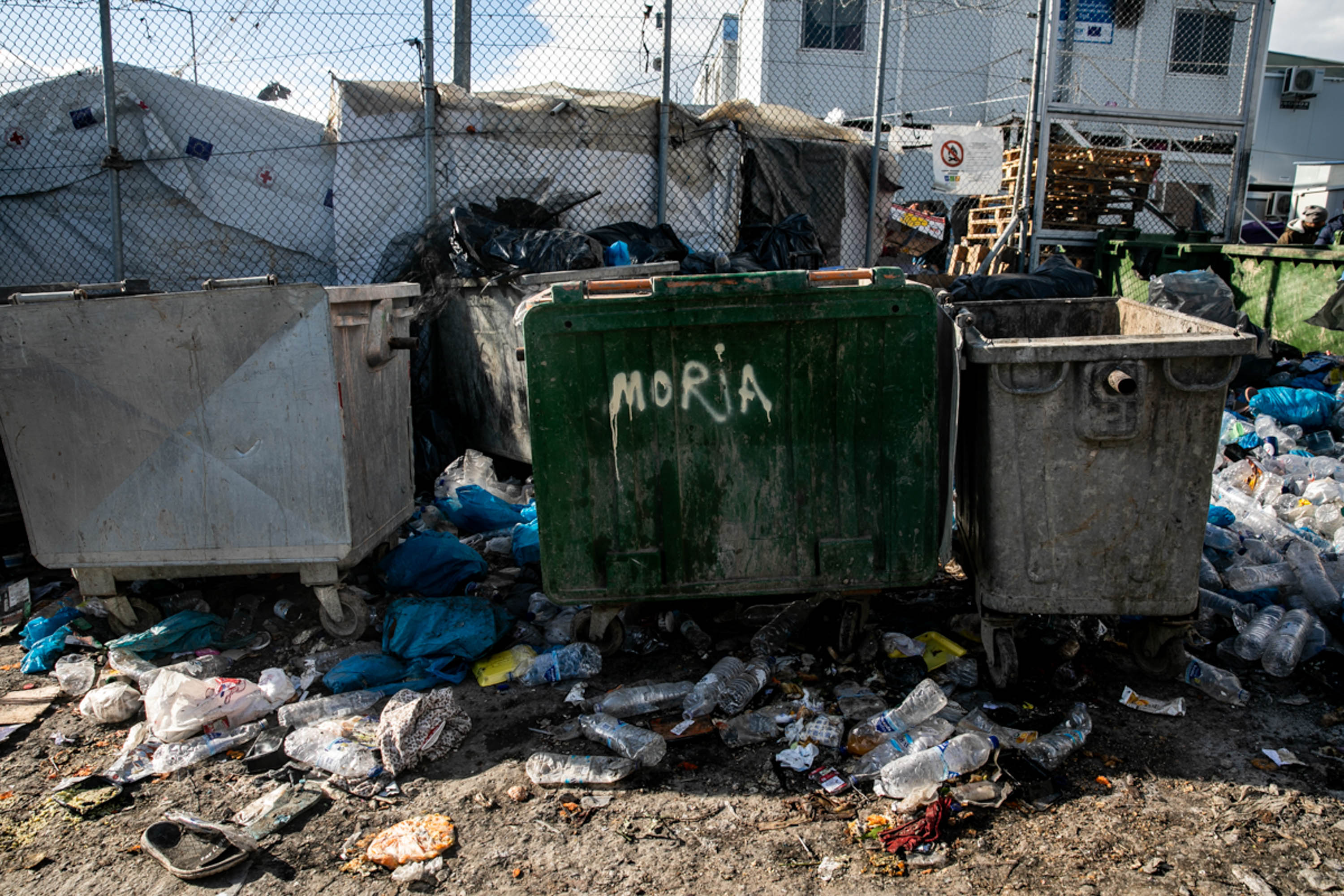
The residents of the camp regularly march through the surrounding streets holding signs and decrying the conditions. But the demonstrations have grown increasingly chaotic and violent after a deadly fire ripped through the camp last year. Greek police recently deployed hundreds of riot police to address the escalating conflicts, but the government pulled back those forces within a few weeks after dozens of residents and officers were injured in clashes.
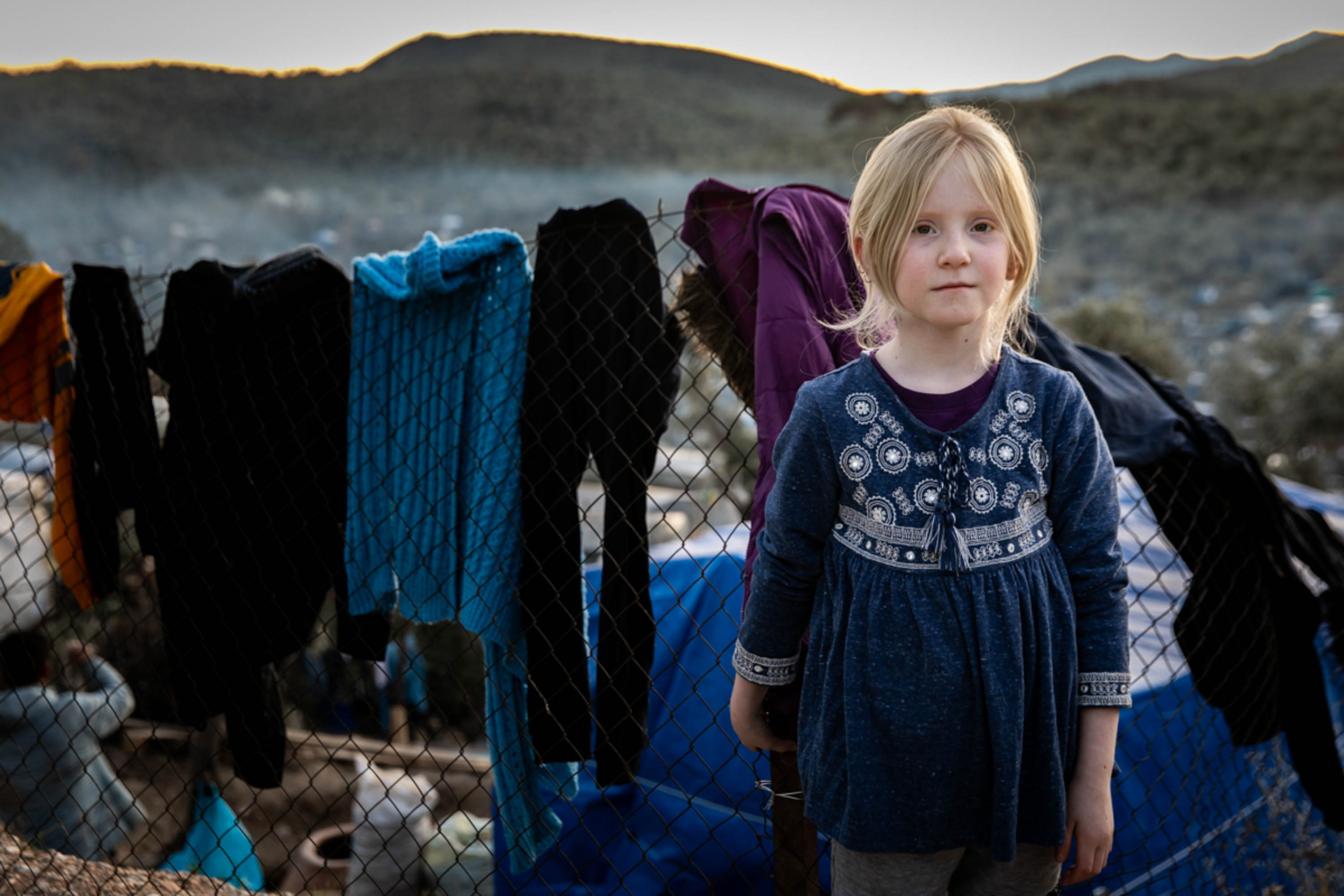
“Do you know why the world remains silent? I did not expect this in Europe,” asked Fereshte, a young woman from Afghanistan, during one protest early this year. “People are suffering. People are dying.”
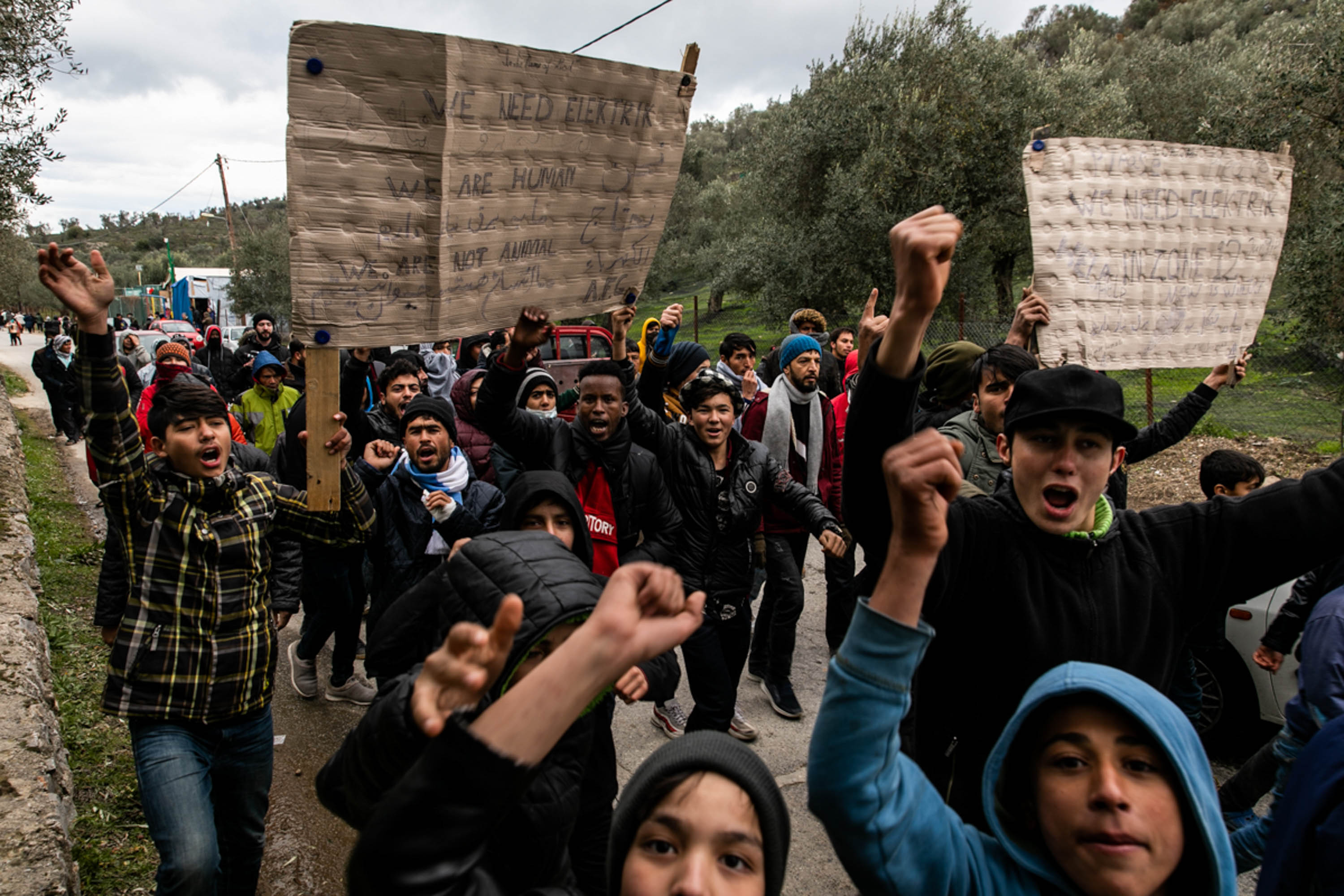
Cover: Without adequate shelter or winter clothing, Tajj, 37, his daughter Sara, 9, and other refugees from Afghanistan and Syria rely on a small fire for warmth on January 4, 2020, in Lesbos, Greece. (Maranie R. Staab/VICE News)
from VICE https://ift.tt/2Q7RkbS
via cheap web hosting
No comments:
Post a Comment